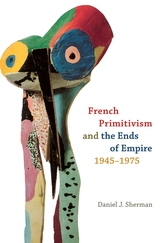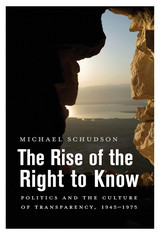
For over a century, the idea of primitivism has motivated artistic modernism. Focusing on the three decades after World War II, known in France as “les trentes glorieuses” despite the loss of most of the country’s colonial empire, this probing and expansive book argues that primitivism played a key role in a French society marked by both economic growth and political turmoil.

Toulouse is one of the most striking examples of urban modernization both in France and in all of Europe. It exemplifies the unparalleled changes that transformed France into an urban nation after World War II. In Modernizing the Provincial City, Rosemary Wakeman examines the ways in which urban landscape and architecture, culture, and economic life were altered by public modernization programs designed to build "the new France." Her study is unique in treating modernization not in the conventional sense of a fixed, abstract model superimposed over defenseless provincial cities, but rather as a matter of unpredictable change.
Modernism in France was a politically determined process enacted by the national government and by corporate interests. Yet it encountered historically articulated urban communities that acted as their own agents in the process of transformation. Wakeman's argument is that modern French cities were created from the rivalries and negotiations between a variety of competing interests in the struggle to define contemporary urban life.
This inquiry into the forces shaping modern French history also contributes to the discussion taking place among sociologists, geographers, urbanists, and historians about the modern condition, the capitalist economic system, and the complex matrix of modern urban life.

The American founders did not endorse a citizen’s right to know. More openness in government, more frankness in a doctor’s communication with patients, more disclosure in a food manufacturer’s package labeling, and more public notice of actions that might damage the environment emerged in our own time.
As Michael Schudson shows in The Rise of the Right to Know, modern transparency dates to the 1950s, 1960s, and 1970s—well before the Internet—as reform-oriented politicians, journalists, watchdog groups, and social movements won new leverage. At the same time, the rapid growth of higher education after 1945, together with its expansive ethos of inquiry and criticism, fostered both insight and oversight as public values.
“One of the many strengths of The Rise of the Right To Know is its insistent emphasis on culture and its interaction with law…What Schudson shows is that enforceable access to official information creates a momentum towards a better use of what is disclosed and a refinement of how disclosure is best done.”
—George Brock, Times Literary Supplement
“This book is a reminder that the right to know is not an automatic right. It was hard-won, and fought for by many unknown political soldiers.”
—Monica Horten, LSE Review of Books
READERS
Browse our collection.
PUBLISHERS
See BiblioVault's publisher services.
STUDENT SERVICES
Files for college accessibility offices.
UChicago Accessibility Resources
home | accessibility | search | about | contact us
BiblioVault ® 2001 - 2024
The University of Chicago Press









